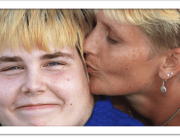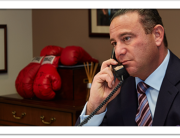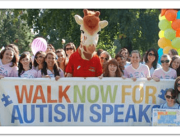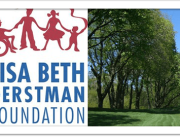After Jonathan Goodstein committed suicide in his junior year at the University of Arizona, his family and friends were in shock.
When the shock wore off, they wanted to help others by doing anything they could to stop people, in particular young people, from taking their own lives.
“This is the worst thing that can happen, losing a child,” said Jonathan’s mother Michele. “We said what can we do to honor his memory? As a family and with our friends, we decided to try to do something.”
The Goodsteins got help from family friend Stanley Camhi, a partner at Garden City-based Jaspan Schlesinger Hoffman.
Camhi and his wife turned their home into a headquarters to get the word out about the importance of suicide prevention. They then helped the Goodsteins found the Long Island chapter of the American Foundation for Suicide Prevention.
“Obviously, you can’t turn the clock back,” Camhi said. “We felt we wanted to do something proactive to keep Jonathan’s memory alive.”
The Goodsteins, with Camhi’s help, raised $200,000 to make a film called “The Truth about Suicide” which has since played at college campuses nationwide. And they continue to work together to organize “Out of the Darkness” walks on Long Island to raise awareness.
“They started saying, ‘Let’s do something on the Long Island level, get a group going, raise money,’” Goodstein said of Camhi and his wife. “We want to get rid of the taboo and talk about this. Get rid of the stigma associated with suicide.”
While many attorneys join boards to make connections, others work on behalf of causes for which they have a personal connection. Brad Gerstman, partner at GerstmanSchwartz, became involved helping people with autism and their families after his son was diagnostic as autistic. “At the core of everything with lawyers, you learn how to be an advocate,” Gerstman said.
Abraham Krieger, a partner at Meyer, Souzzi, English & Klein in Garden City, has a more historic family connection to a cause. His parents survived Auschwitz. Krieger serves as general counsel for the American Gathering of Holocaust Survivors, using his skills as an attorney to assist that and other organizations dealing with a cause close to his heart.
“I do [pro bono] legal work on behalf of the American Gathering. And I’ve spoken on matters involving the ethical responsibilities that lawyers have in the role of the rule of law,” he said. “Those are integral issues to understanding the Holocaust.”
Donald Schwartz, head of litigation at Forchelli, Curto, Crowe, Deegan, Schwartz, Mineo & Cohn in Mineola, said he gets pleasure from helping people – after feeling lucky his sister was helped.
Schwartz became involved with the organ-donation cause after his sister Ronnie was saved by an organ transplant.
“The gratification is personal,” Schwartz said. “I’m very close with my sister. I wouldn’t have her if it wasn’t for this organ donation.”
Schwartz is the only lawyer on the board of the Long Island chapter of Transplant Recipients International. He also spends time handing out fliers and speaking about how we can all save lives through transplants.
“In the United States, 99,000 people are waiting for organs, including 15,000 in New York. Six hundred die in New York a year because organs don’t come in time,” Schwartz said.
While many attorneys take up causes affecting family members, some attorneys focus their practice on an area in which they have personal experience, expertise and a desire to help.
Joseph G. Milizio, managing partner at Capell Vishnick in Lake Success, founded a practice serving lesbian, gay, bisexual and transgender clients. Milizio, who is gay, takes part in groups helping these people and gets business from them.
“When I started the area of law in the firm representing the LGBT community, I became aware of a lot of organizations out there working with people in the community,” he said. “And I decided I should become more involved.”
Capell Vishnick also adopted something else as a sort of official cause for which they raise funds. Milizio, who also has multiple sclerosis, involved his firm in that effort as well, by raising money.
“I talk about what it’s like to have MS,” he said. “You don’t know from day to day what your life is going to be like.”





